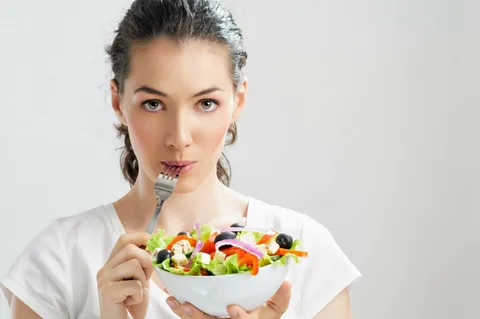Today, the world is growing faster. Among the things that gain much attention is the term micro biting. What does it mean to micro bite and how does it impact our daily lives? The article looks at the concept of micro bites understand how it impacts our eating behaviors and our overall well-being.
What is Micro Biting?
Micro biting: The taking of extremely small bites of food. Although it does not sound dangerous at all, this may be an important indicator of deeper problems associated with eating disorders and disordered eating. When a person engages in micro biting, they focus on control over their food intake. These forms of anxiety or the pressure to fit a particular body image can cause a person to engage in micro biting.
The Development of Micro Bites
A trend emerging with an increasingly health-conscious society is that of micro bites. As we are becoming much more aware of our eating habits and how they impact our diets, most of us seek ways of controlling diets without feeling deprived. That’s where micro-biting comes in. Taking smaller bites may make an individual feel he is indulging even as he’s in control of his portions.
This can be seen in many food rituals, whereby people intentionally measure their food or take a long time with each bite. This can be sanitary, though it does encourage mindful eating, and leads to a very unhealthy set of patterns if taken to extreme conclusions. There is, therefore, a need to recognize the fine line between mindful eating and disordered eating.
The Psychological Impact of Micro Biting
The most important reason most people end up practicing micro biting has to do with anxiety that is related to food. In some instances, micro biting can help people feel secure since they can determine the amount of food they take.
However, that will spiral into food control thereby creating unhealthy relationships with food.
Effects on Eating Behaviors
In habituation, the manner of micro biting affects their total habit of eating. Persons get so mesmerized by portions and calorie intake that they may turn into disorderly thinking processes about the food to be consumed. This orientation towards the rules set up within themselves invokes feelings of guilt and shame when they fail to uphold them.
Anxiety sufferers can get some solace in indulging in micro biting because this way, they can be in control of their eating experience. Nevertheless, these feelings are automatically suppressed and not solved through rigid eating.
The Connection to Eating Disorders
Micro bites can be a sign of more serious eating disorders. Anorexia, bulimia, or another condition presents itself by controlling patterns in how one consumes food. For an individual with either of these disorders, micro bites can be a way to avoid having an overwhelming amount placed before them or the anxiety of eating altogether.
Very important, though, is to note that despite the healthy nature of micro biting In the first place, it leads to acute mental health problems if engaged in recklessly. To those who feel the need to seek professional assistance because their eating patterns appear to be under the control of anxiety or are moving them toward disordered eating:
Healthy Alternatives to Micro Biting
That is, whereas it might be intuitive that micro biting can lead to undesirable side effects, there are healthier alternatives to manage such eating behaviors. Within this category of more plausible alternatives is mindful eating, which encourages people to savor their food without restraint but with sobriety. It’s about flavors and textures, not counting every calorie.
Another aspect is that of balanced meal planning, for example with products such as Fluval Bug Bites Tropical Micro Granules. These nutrition-packed foods will provide for a well-balanced diet minus the fat of control or restriction. It would then be fun for people to eat and, at the same time, feel healthier.
Creating Healthy Food Rituals
Positive food rituals may also balance out the urge to micro bite. Obsessed with the need for portion control, people may view other food-related rituals, such as cooking with family or friends, that may foster positive relationships with food. Such an approach could elevate the pleasure of the act of eating and ultimately enhance the associations between food and people.
But there is also the psychological aspect of eating. Therapy can give a person a set of tools to deal with anxieties related to food-thereby helping him approach eating more sensibly.
Conclusion:
Therefore, in a nutshell, micro biting and micro bites speak volumes about a concern regarding our food eating habits and mental health. And though the taking of small bites may be part of portion control, it is in many ways anxiety-related and relates more to eating disorders. So one needs to be aware of how such practices tend to influence our relationship with food.
It helps strike the balance right: to enjoy food and yet maintain health. Focusing on the routine of mindful eating while building healthy food rituals can be encouraging in promoting a healthier relationship with your meals. Ultimately, understanding the motivations for our behaviors will help guide us into making better choices for ourselves.And when we do so, it becomes the way to happiness and health conscious.

